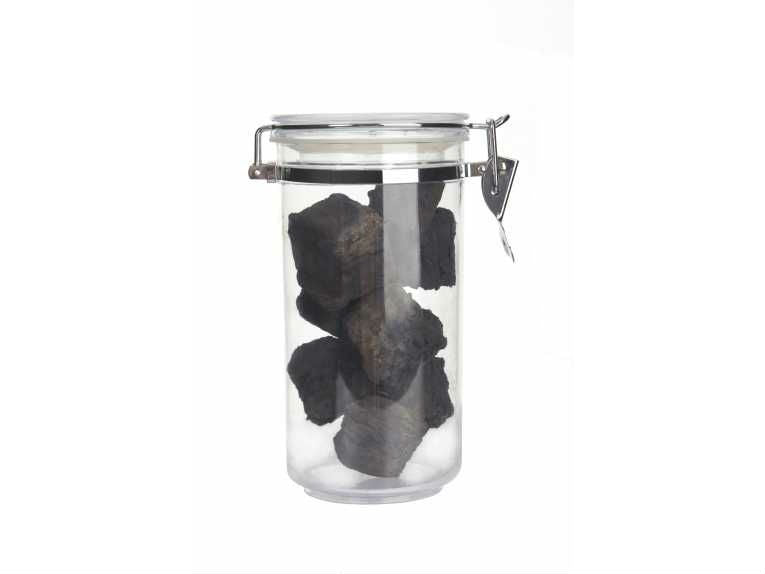Carbon capture and storage (CCS), the much-touted technology for bolting the label 'clean' onto that benchmark bad-boy of fossil fuels - coal - has suffered some serious knock-backs over the last few days. Adding to news of canceled projects, and claims of leaky CO2 reservoirs, another CCS casualty was announced recently; American Electric Power (AEP) has decided to pull the plug on its CCS add-on to a West Virginia coal-fired power plant.
Adding to the gloom, an allied technology called carbon capture and utilization (CCU) - which makes use of captured CO2, rather than storing it underground - was reported yesterday to be many years from fruition, in a study from the UK's Center for Low Carbon Futures. It all adds up to a worrying turn of events for a technology that many saw as an essential tool for bringing down greenhouse gas emissions, and avoiding a hothouse planet.
King coal on the rise
The drive to capture carbon dioxide emissions from power plants, and coal plants in particular, has been highlighted by the world's increasing reliance on coal-power. Burning solid coal generates a greater amount of CO2 than natural gas or petroleum, which has led to many environmentalists calling for a rapid cut back in coal.
Instead, the use of coal for generating electricity has rocketed, driven by developing countries increased power demand. Many, such as China, which have big reserves of the black stuff. The IEA (International Energy Agency) predicts that coal could rise from 40% to 60% of energy use, over the next two decades. If the world can't cure its coal-addiction, then it needs to do something about the resulting CO2 emissions, quickly - which is what CCS-proponents claim the technology can achieve.
Emit, bury, forget
Carbon capture and storage works by trapping the CO2 streaming from the exhaust stacks of power plants, cooling and concentrating it, and then piping it to somewhere that is considered safe to store. That could be a depleted oil reservoir, or suitably well-sealed structures, deep underground. Some optimistic studies have claimed there is enough storage capacity in the US for 500-years of CO2 emissions.
And the last few years have seen a flurry of big CCS projects across the world, with over 60 power plants planning to divert at least some of their CO2 emissions for storage elsewhere. But the technology is new, and last couple of years have shown the costs to be high, and results so far have been mixed. The announcement that AEP's Mountaineer power plant in West Virginia will ditch its CCS pilot is symptomatic of a technology struggling to overcome technical and financial hurdles.
CO2 going round in circles
The AEP coal-plant was only planning to inject 1.5% of its emissions into salt-water reservoirs near to the plant. But the costs of doing so, for a power-plant that wasn't designed with CCS in mind, didn't match the results - and even that 1.5% target was missed. CCS is having more success where the CO2 is being put to some active use. Many power plants close to oil-fields have been able to earn money by capturing their CO2, and pumping into oil-reservoirs.
Doing so improves the oil recovery rates, so oil companies are happy to pay for the service - which helps to pay for the extra costs of doing CCS at a coal plant. Of course, given that the whole point of CCS is to reduce carbon emissions, the idea of using CO2 from coal-plants to pump out more oil - and so produce more CO2 - is fundamentally flawed, and bordering on the absurd.
Even more worrying, the CO2 pumped into oil reserves may not actually stay there, despite reassurances from petroleum geologists. One of the oldest CO2 storage projects aimed at squeezing more oil from old oil-fields was started in 2001, at Weyburn in Saskatchewan, Canada. That took CO2 from a 200 miles south, produced by a North Dakota gasified-coal power plant. Recently, reports of excessive CO2 levels on a local ranch hit the media; at least one report has laid the finger of blame on the Weyburn CCS, although the oil operator denies this.
Using CO2 for good
If storing all that captured carbon is looking increasingly tricky, is it possible that captured CO2 could be put to good use instead? That would remove some worries about possible leaks, and could also make carbon capture less costly. Ideas touted include supplying CO2 for greenhouses, using the CO2 to feed algae producing bio-fuels - or even enlisting it to help make plastics or construction materials, like cement.
Unfortunately a report from the Center for Low Carbon Futures, into carbon capture and utilization (CCU), doesn't hold out a promise of a fast deployment of any of those technologies. The ideas are still very much at the drawing board stage - and the report acknowledges that the high cost, high energy use, and the relatively low volumes of CO2 likely to be used, means that CCU is unlikely to be a big global player on the carbon reduction front any time soon.
Put together, the recent news appears to show that the charging white steed of carbon capture may be something of a mirage. If so, that would leave the world with a stark choice - a massive and rapid investment in renewables and energy reduction - or the potential of a global climate spinning out of control.
Top Image Credit: © mscates176










